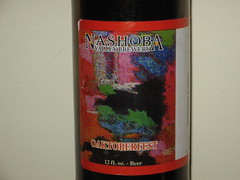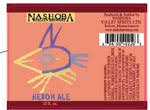Fulsome tar-like hop-charred bittering supercedes stylishly traditional caramel-burnt dark chocolate creaminess. Viscous molasses-smoked pine char, oily black coffee residue, and heavy anise goo further embitter sludgy oats-dried backend.

Fulsome tar-like hop-charred bittering supercedes stylishly traditional caramel-burnt dark chocolate creaminess. Viscous molasses-smoked pine char, oily black coffee residue, and heavy anise goo further embitter sludgy oats-dried backend.


CARTON BREWING STORMS OUT OF THE GATE
Two investigative white-collar relatives and a respected musician friend with a crappy home brew kit yearned to create the beer of their dreams. Soon, the triumphant triumvirate would perfect a session beer that’d be the calling card for their ambitious new project. Run by Augie Carton (a stockbroker), his cousin Chris Carton (a Newark defense attorney), and Jesse Ferguson (famed Def Jux producer), Carton Brewery opened its doors, August 2011.
Just a block away from the largest eastern seaboard marina at Sandy Hook (inside an unassuming lavender domicile), Atlantic Highlands’ upstart Carton Brewery shocked local Jersey competitors by winning the People’s Choice Award at the First Annual Asbury Beer Fest. Utilizing a 5,000 square foot, 2-storey structure built circa 1890 to house Methodist summer tents, the newly wood-floored space was adapted to a legitimate brewery after a year of preparation.
While Chris Carton admittedly admired the beer crafting skills of local Red Bank celebrity Gretchen Schmidhausler (formerly of Basil T’s), Augie’s been genuinely impressed by New York brewers Southern Tier and California’s Firestone Walker. Amongst Carton Brewery’s pristine first floor equipment is a sterling stainless steel baby fermenter used during early experimental phases. Holding 20 gallons of beer, this virtual ‘flavor finder’ allows for four separate five gallon batches to be created to find out which hop variety or yeast strain works better for each individual recipe. A Red Rye is being readied for the larger tanks as we speak. And last weekend, the Carton’s made a pilsner-styled beer with blue agave syrup.
“We’re high hop guys,” Augie insists. “The red rye is our comfort beer. Whatever hop we want to play with we jam into the recipe and see how it’s gonna come out. We may fool around with four different yeast strains the first time we do a wildcard brew. Then we’ll settle on one yeast for the full 20-gallon fermenter.”
After cracking some jokes, we gathered at the red-bricked second floor taproom, a pristinely rustic lounge with two ‘70s-styled leather couches, sturdy wood bar, flatscreen TV, and the three-tiered trophy won at Asbury’s beerfest.
Augie settles under the taps, pouring briskly lemon-seeded, grapefruit-sugared Carton Boat Beer, an instantly popular conventionality with curried peppercorn-tarragon herbage and weedy purple kush aromatics.
“The job of any session beer is to taste good cold and clear up a thirst,” Augie opines as angry Irish fiddle music plays in the background and the sun gleams through two skylights. “When you’re no longer gunning them down and you need the beer to warm up a bit – unlike macrobrewed lagers that go to hell at 40 degrees – we want Boat to stay interesting. As it warms, citric fruits turn to white stone fruits – peach, pear, apricot. What starts off super-piney becomes more mossy and chill and evolves. We chose Kolsch yeast because it stays out of the way of the iron-rich salty brined Jersey mineral water.”
Homegrown hero Bruce Springsteen blares from the speakers as we dip into zip-coded 077XX East Coast IPA, an expressive citric-candied medium body veering stylistically away from clean-watered West Coast rivals.
“We focus on harmony between bitterness and sugaring playing to our water source,” Augie shares as the all-important Saturday tasting crowd arrives. “We’re anti-type, but 077XX’s an India Pale Ale. It has a saltier eastern watering we’re not hiding or correcting except to take chlorine out with a carbon filter. There’s super-American floral tropical hops.”
Though he’s not with the Carton’s today, partner Jesse Ferguson grew up in Fort Collins, Colorado, moved to New York to run the dopest indie hip-hop label (Def Jux), then married Augie’s wife’s best friend. Practicing zymurgy was initially difficult for the apprenticing Carton-Ferguson connection, but the curious trio just wouldn’t give up.
“Jesse was a super-helpful cool cat I gave a homebrewer kit to as a thank you present and he went ahead and brewed a terrible beer,” Augie laughs as we dip into headily approachable Carton BDG, a nut-charred, black-peppered, coffee-roasted dry body evoking French bread crust. “He started making better beers and Chris and I were drinking a lot. If we could get Russian River’s Pliney The Elder, we’d drink it as a session beer. So Jesse attempted to make a session beer. After five attempts, we were getting closer to what we truly wanted. We sent Jesse off on a year of internships to Georgia’s Terrapin Brewery and Kelso in Brooklyn.”
For mid-afternoon dessert, I try the pilot version of an unsweetened session stout exhibiting acridly swampy earthen soiling and chocolate-soured coffee oiling. According to Chris, it’s the world’s only dried milk stout. A finalized version will be available in January 2012.
“Ultimately, our plan was to expand beyond kegs,” Augie says. “We want to stay this size until we could bottle or can our own beer instead of using a contract brewer. As beach bums, we don’t necessarily want to bottle because boaters handle cans easier. Drinkability is a priority.”
Augie then elucidates about ‘loving the provocative interplay between beer, wine and food.’ Before long, the loquacious host displays a solid appreciation for ‘the difference certain hop spices and yeast batches make upon discovery.’
A week later, Augie shows up at Little Fall’s 381 Main to pour Come Out & Play, a one-time ‘common lager’ bringing chocolate-spiced dried fruiting to resinous Warrior-hopped nuttiness.
He concludes, “Last time we were here, 381 sold-out our Pumpkin Cream Ale in 30 minutes. So we thought we’d bring up something special again.”
During a March 2012 stopover, got to try a few new Carton beverages alongside the wife. While conversing with Carton brewmaster, Jesse Ferguson, at the first floor brewing area, he pours me a just-finished version of his latest concoction, Red Rye Returning. Served right from the tank, its caressing brown-sugared chocolate malting and dainty fig-sugared dalliance sit atop a serene peat-y rye base tingled by mild Simcoe hop bittering.
Then it’s off to the second floor bar where a few dozen brew hounds sample Carton’s sessionable Boat Beer and toast its brisk citric lure. Ferguson’s partners, Augie and Chris Carton, greet me and break out a pilot version of Honey Porter, a sensational newly tapped libation bringing uppity rum-spiced illusions to smoked maple molasses, black chocolate, honeyed pecan, purple grape, hickory and chicory illusions. Augie then gives me a shot of a fantastic Caribbean rum called Shipwreck that he’s trying to emulate with future piloted renditions.
As we get set to leave, I meet Dan Hitchcock, a young brewer whose Rushing Duck Brewing is due to open June ’12 in Chester, New York. The former Weyerbacher brewer (and American Brewers Guild grad) promises year-rounds such as Coffee Porter, Strong Ale and West Coast Pale Ale.
Agile B.D.G. (a.k.a. Brunch Dinner Grub), a delectable medium body meant to be paired with food, retains a dry nut char and mild coffee roast, evoking French bread crustiness in the midst. Withered lemony herbal respite tweaks black-peppered tarragon, thyme and sage nuances.
On tap at Little Falls’ 381 Main, fine one-off prune-hued ‘dark common lager’ augments resinous Warrior hop bittering with dried fruited abundance. Ripe prune-raisin conflux and chocolate-spiced Belgian yeast funk saddle burnt toast bottom. A rich sessionable beer for more adventurous lager heads.
For a quick second, jaunty beechwood smokiness really subsumes dry American-lagered German-styled rauchbier. Smoked salami, beef jerky, pastrami, and bacon illusions perk up front end over cedar-burnt hop char. But soap-stoned carbolic aridity obliterates freeze-dried cured meat façade, relegating latent cocoa bean rancor to mere affectation.
Compelling Black India Pale Ale (aged with vanilla beans) invites stupendous coffee-roasted vanilla creaminess to enhance nutty hop-charred bittering and oats-bound chocolate roast, relegating expectant IPA-like dried fruiting to auxiliary role. Minor cocoa spree adds to mocha-laden tendencies.
Exemplary rum barrel-aged elixir brings soft-tongued bourbon whiskey boozing to creamy chocolate-vanilla sweetness and sharp cedar-burnt hop char. Though advertised sweet potato flavoring gets ambushed, affluent nutty fruiting deepens yam-jammed mocha-bound curiosity. Ample brown-sugared cola-hazelnut conflux thickens bruised cherry, red grape, raisin puree and dry burgundy illusions as well as fluffy marshmallow slipstream. A near-perfect adjunct ale.
Amiable ruby-marooned Belgian dark ale gains lovely raisin-prune theme above sweet candi-sugared caramel malting and peppery hop slipstream. Anticipatory cellar-like Belgian yeast funk adds pungent mustiness to dried fruiting. Harsh phenol spicing clouds slim banana-clove reminder, but accrued black cherry, bruised apple and apricot subsidy adds fruitier intrigue.
Easy-flowing straw-hazed Bavarian-styled hefeweizen brings tart lemon-soured banana-clove entry to dry rice-maize midst and honey-spiced white wheat backdrop. A bit blanched, though some crystal malt sweetness shines upon sunny citric scamper.

Though aged in oaken maple syrup, its trifling affect is negligible upon burnished amber autumnal seasonal. Expectant leafy-hopped foliage caresses cinnamon apple-spiced cherry-peach-pumpkin pie sweetness to affable cornbread backdrop. Richer than most marzen-styled brews so try with hearty Thanksgiving dinner.

Total hop-head delight! Vibrant West Coast fruiting and creamy crystal-sugared malting contrast lively pine needled bittering of dark amber IPA. Everlasting resin-hopped grapefruit rind template upped by sharp juniper bite, inviting ripe tangerine, pineapple, cherry and peach tang to invigorate latent orange peel bittering and wispy floral subtlety. Indelible.
Wavering amber-bronzed Extra Special Bitter fights off bitter alcohol burn with singed mineral-grained alacrity, woody Fuggle hop dryness and herbal tea respite. Slight dimethyl sulfide acridity drowns out toasted caramel malting, lemony orange-peeled bittering and apple-skinned brown pear nuance.
